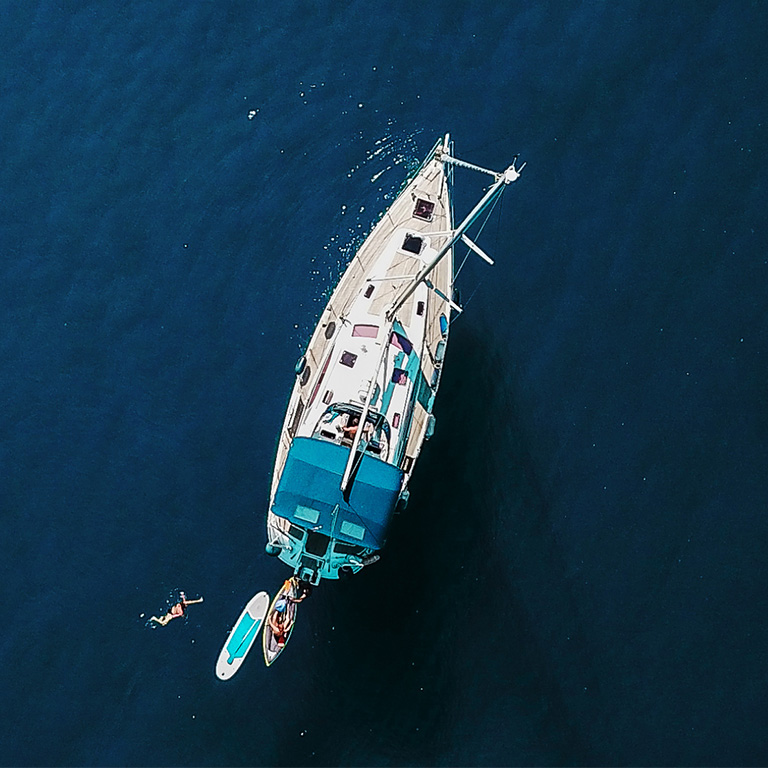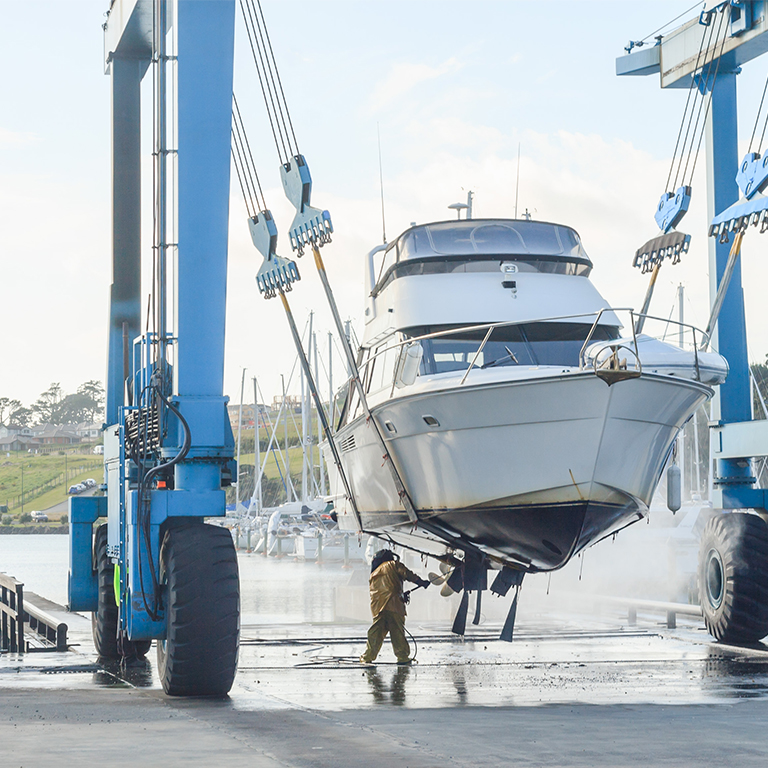Have you just purchased, or are you thinking about buying a boat for the first time? Firstly, congratulations! To help you with the next steps, we’ve pulled together an easy to follow, 7 point checklist of the key things you need to think about.
First time boating checklist for beginners
- Get the right boat insurance
- Learn how to tow your boat on a trailer
- Practice launching from the trailer
- Arrange boat storage
- Get to grips with boat maintenance
- Check your sailing gear and equipment
- Tell someone what you’re doing and where
Get the right boat insurance
Having the right boat insurance in place is of the utmost importance to protect you and your boat against potential hazards and the unforeseen.
The best way to ensure that you have the right cover is to consult with us before doing anything. This way you can learn what coverage is required (and what isn’t) for your personal boating requirements. Our expert team can help guide you through the whole process.
Key covers can include:
- Cover for a broad array of cruising ranges
- Any driver cover with your permission
- Accidental damage including fire and theft
- Third party indemnity cover
- Personal accident cover (up to age of 76)
- Loss or damage occurring during hauling out, launching and lifting by crane, including fitting out and overhauling
- Your craft hitting an object underwater or partly underwater
- Loss or damage whilst in transit by road for vessels up to 9 metres in length
Learn how to put your boat on a trailer
If your boat is suitable, trailering your boat allows you to explore new places but can be a nerve-racking experience for first-timers.
To load your boat, begin by reversing the trailer into the water. The wheels of the tow vehicle should be positioned close to the water's edge. The trailer should be submerged so that the boat can float onto it i.e. the bunks/ rollers should be wet. Once in place, put the handbrake on and chocks behind the trailer’s wheels.
Make sure your boat is positioned so that the trailer supports it evenly – this minimises the chances of damage during transportation. Once the boat is well-supported, secure the winch strap to the bow eye.
Then, use the winch to pull the boat until it reaches the winch post at the front end of the trailer. Before you do anything else, attach the emergency backup chain as well.
Once in place, tow your trailer back up the ramp very slowly to make sure the boat is supported evenly. Conduct all other necessary checks away from the ramp to make way for others wanting to launch after you.
Practice launching from the trailer
Familiarise yourself with boat ramp etiquette to avoid appearing rude. Adhering to these unwritten customs will facilitate smooth operations and enable everyone to quickly get in the water and on their way.
One of the most useful tips for first-time boat owners is to try launching and backing down the ramp during off-peak hours, allowing you to practice without stress. This will make things easier when it's finally time to hit the water.
Arrange boat storage
There are a number of options but all need careful consideration.
Keeping you boat at home is fine provided you have the space and can cover it appropriately. Ideally, this would be in a garage but not all boats fit. If you live in a colder climate you need to make sure your boat is winterized properly to ensure its longevity. This is particularly important if your vessel has an engine or outboard motors.
The other option is to dock your boat at a marina but consider the extra expenses this will incur every year.
Get to grips with maintaining your boat
Much like your cars and other vehicles, your boat needs looking after so you can continue enjoying it for years to come.
This includes learning how to wash your boat properly, checking any propellers, and changing the oil. Of course, you may opt for servicing at a boat yard where professional technicians will do everything for you. Just make sure they have a solid track record and lots of good and recent reviews from happy customers. If you can get referred to a boat yard with a good reputation, even better.
Check your sailing gear and equipment
It’s best to make a tick list of everything needed every time you go out on the water. That way, you’ll never forget anything.
Here’s a list to get you started:
- Mooring lines
- Fenders
- Wet weather gear
- Lifejackets and throwable floatation devices
- Visual signalling devices (like flares)
- Sound signalling devices (like air horns and whistles)
- A VHF radio to call for help if needed
- A medical kit
- A tool kit
- Basic spare parts including light bulbs and fuel filters
- A heavy-duty flashlight
- Suitable anchor and appropriate amount of chain/rope
Remember the crucial things are always: safety equipment, and topping up your fuel & engine coolant.
Tell someone what you’re doing and where
Make sure that you have informed a responsible party of your boating plans before setting out on the water. Provide them with the destination and an estimated time of return.
This precautionary measure ensures that, in the event of an emergency where you are unable to reach out for help, someone will have the necessary information to initiate a search and rescue operation.
Key takeaway
It’s crucial you know how to operate your boat properly before heading out anywhere.
Familiarise yourself with its handling, and familiarise yourself with the docking procedures and navigation regulations in your area.
Taking a boat education and safety class is a smart investment to ensure that you have a safe and enjoyable boating experience from the off. The Royal Yachting association have more than 2,400 training centres and 100 courses to choose from, you can find out more here.
Keep in mind that everyone starts as a first-time boat owner, and with practice and patience, you'll become more confident and comfortable on the water.
Get in touch with our expert boat insurance team today if you have any questions about getting your new boat insured or for a no obligation quote.
Get an online boat insurance quote
Call us to speak with one of our insurance experts or get a quote today.


